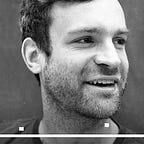In 2019, 96% of royalties went to the top 4% of musicians.
The pandemic has destroyed the live incomes of musicians, but even before it hit, the music industry wasn’t working for the millions of independent musicians and music enthusiasts who aren’t stadium-tour artists or passive consumers.
Dark present, bright future
It’s an incredibly painful time but it’s accelerating a positive shift that’s taken root over the last decade. A radically different, fairer, more resilient music industry is springing up around us. It’s focussed on creating communities rather than just content and the global lockdown is only going to accelerate its progress.
The leading voices in this new music industry share their processes on Instagram, Youtube and Twitch, regularly release music on Bandcamp, meet with their audiences on Discord servers and fund their work on Patreon through the support of their audience. They welcome new voices into their collaborative way of working, knowing that each new voice enriches everyone’s musical world.
Music as a process not a product
This new industry approaches music as a dynamic creative process which we participate in rather than a static product we consume. It casts musicians as educators who lead conversations and help communities navigate their lives rather than untouchable gods who hide behind the opaque myth of their brand. It puts skills and relationships first and treats content as a document of a process rather than an end in itself.
I’m fascinated by the creative technology which these new musical leaders put at the centre of their practice and the stories they tell. Music production technology has evolved over more than 100 years to give creators near-infinite control over the details of their creations so they can produce static pitch-perfect results for mass-consumption. But these values of staticness and perfection don’t apply in this new dynamic world which has more in common with gaming than it does with a traditional media industry.
Music as gaming
The new gamer-like musicians gravitate to instruments where the basics are easy to understand and simple to pick up but hard to master, that allow them to quickly demonstrate skills, educate their audience and involve them in a collective creative process. They tell stories and build communities around modular synths, collectible hardware, acoustic instruments and compositional techniques.
Ever since I was a kid I’ve experienced music as a process not a product, an activity not a thing. My first instrument was the violin which requires constant physical intervention to make music. When you watch someone play the violin it’s obvious how the music is connected with the person. Even if you can’t play it yourself you understand the basics of how it works and appreciate the practice the player put in to get that good.
With hindsight I realise my career as a musician and technologist has always been driven by framing music as a participatory activity. It’s exciting that this way of seeing things is now gaining so much momentum and I’m grateful to be working on Endlesss, a new creative tool which is built around these values. I hope it will play a central role in this new world.
Building Endlesss
Endlesss started life as an instrument I developed to allow me to take a spontaneous performative approach to improvising electronic music. I wanted to liberate myself from the perfectionism that I fell into in long solitary hours in my studio. The workflow evolved over a decade of regular touring at a time when process-based music was an arty experimental niche. At first I wanted to build a career for myself as an improvising musician but I soon realised there was much greater potential in what this workflow could do for others.
When I set out with the team to start work on Endlesss our aim was to build a social musical instrument that reimagined music creation for this new world. These are the goals we set
Simplicity
It has to be simple to understand the basics so creators can relate their process easily to their audience and allow their audience to replicate it.
Depth
While the basics must be simple, it must also allow ever-increasing mastery so the most dedicated users can keep progressing, develop their own playing style and build culture around their practice.
Momentum
Features which allow the creator to question or second-guess what they’re doing will take them out of the flow and encourage them to perfect their past ‘mistakes’ rather than hone their future skill.
Storytelling
Documenting and sharing the creative process should be as easy as possible. Ideally the instrument should automatically document everything during the creative process, allowing the player to choose what to share after the fact.
Collaboration
The instrument should make it easy to collaborate, either co-located or remotely
Connectivity
It should be easy to use any other instrument with it and should integrate seamlessly into other musical workflows.
Sustainability
The process of playing the instrument should be energy-giving for both the player and the audience.
If you’d like to find out more about how we’re building Endlesss, head to studio.endlesss.fm. Our iOS app is in the appstore already and we’re launching a Kickstarter campaign on 19th May to build a Mac/PC standalone/VST version.
We want Endlesss to become a place where the most dedicated creators can make a living for themselves by providing creative value and meaning for the communities they help build on the platform. We’d love your help in achieving this.
Right now we’re focussed on building the core creative and social functionality of Endlesss. If you share our vision and want to join us on our journey then head to studio.endlesss.fm to find out more and sign up to back us.
